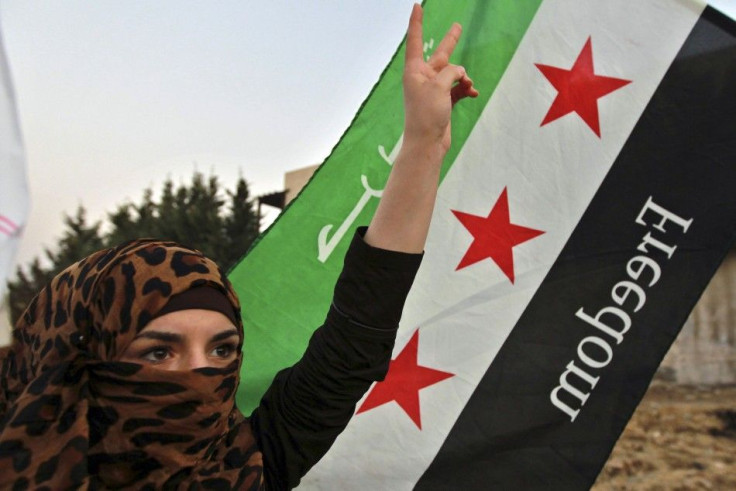Ramadan Reflects Struggle For Democracy In Muslim World

As the Muslim holy month of Ramadan begins, the Islamic world will have much to reflect upon this year. In Syria, a civil war looms if it hasn't already arrived. In Egypt, a fledgling democracy is being tested. In Afghanistan, an exhaustive American war is coming to a dubious end.
For over 1.6 billion Muslims worldwide, from Mecca to Manhattan, Ramadan is a period of spiritual contemplation and renewal through fasting, prayer and abstinence, but it cannot be separated from the complex realities of the physical world.
Ramadan is about freeing yourself from your wants, but there is also the purpose of making you aware of the less fortunate, said Safaa Zarzour, General-Secretary of the Islamic Society of North America, an advocacy group for Muslims in the U.S. Some of us can withhold food, but others do not have that option.
In the U.S., where Muslims of all backgrounds have been born or immigrated to, some from areas ravaged by conflict, there is a unique platform from which to view the diverse expressions of faith throughout the Islamic world -- particularly during a time of great transition that is perhaps best characterized by the recent wave of popular democratic uprisings in North Africa and the Middle East known as the Arab Spring.
Zarzour emphasized the parallel between observance of Ramadan through pursuing freedom from physical desires and the overall struggle for freedom from oppression in many parts of the Islamic world.
They are very connected and should not be divorced from each other, he said. What's happening now, especially in Syria -- There are people with no food, some eating the leaves off trees. It makes Ramadan very real for all of us.
Indeed, Syrians will have a very different experience of the holy month as violence continues to exacerbate the humanitarian crisis there, while President Bashar al-Assad desperately clings to power.
There is no illusion about how difficult and painful this will be, Zarzour said of the 14-month ongoing conflict in Syria in which over 9,000 lives are estimated to have been lost. But there is also no illusion about the people's determination to fight for their freedom.
While events like in Syria and elsewhere in the world have heightened awareness of the meaning of Ramadan for Muslims in America, they have also changed perceptions of Islam for many non-Muslims as well.
Zarzour spoke of the Arab Spring as dismantling the prejudiced concept of Arab exceptionalism, a belief that people in the Muslim and Arab world are inherently predisposed to accepting oppression.
Those people long for democracy just as anybody else, he said.
Cyrus McGoldrick, civil rights manager at the U.S.-based Muslim advocacy group Council on American-Islamic Relations, echoed Zarzour's sentiment.
I think that the Arab Spring humanized Islam and Muslims for many Americans, as people realized that we want the same rights and sovereignty and dignity that all human beings expect, McGoldrick wrote in an email.
We are at our best when we have true solidarity with all people struggling for justice, moving beyond the dividing lines of nationality, ethnicity, language, class and sect, he added.
© Copyright IBTimes 2024. All rights reserved.





















